Autism and Schizophrenia: Is There a Link?
Unveiling the potential link between autism and schizophrenia: Are overlapping symptoms just the beginning?

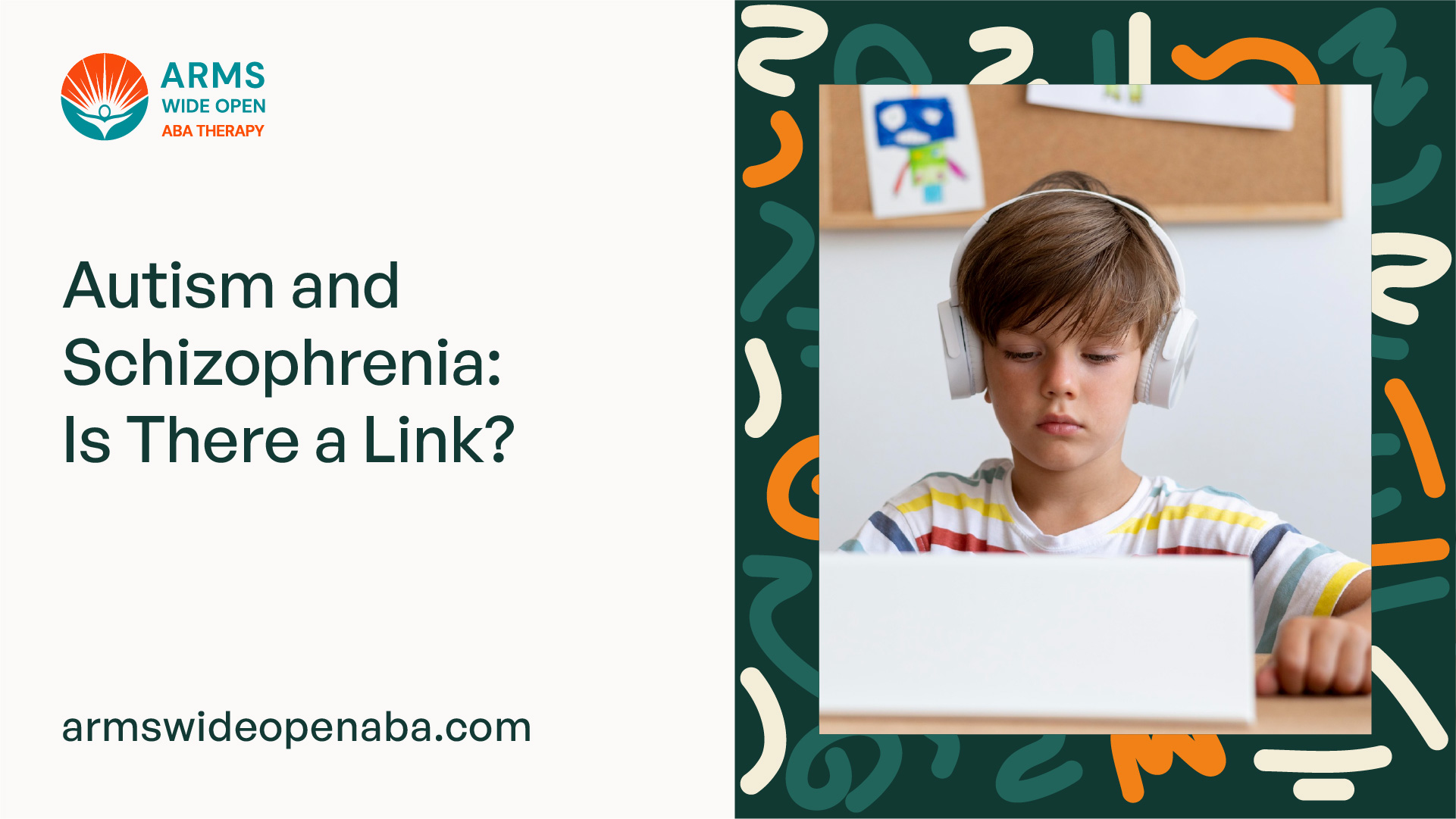
Exploring Autism and Schizophrenia
When delving into the realms of autism and schizophrenia, it is important to first establish clear definitions and distinctions between these two neurodevelopmental disorders before exploring their potential relationship.
Definitions and Distinctions
Autism Spectrum Disorder (ASD) and Schizophrenia are distinct psychiatric conditions, each with unique characteristics and diagnostic criteria. While both disorders may impact an individual's perception of reality and social interactions, they manifest in different ways and are diagnosed based on specific criteria outlined in the Diagnostic and Statistical Manual of Mental Disorders (DSM-5).
Overview of Autism Spectrum Disorder (ASD)
Autism Spectrum Disorder (ASD) is a complex developmental disorder that affects social interaction, communication, and behavior. Individuals with ASD may exhibit a wide range of symptoms and challenges, leading to difficulties in interpersonal relationships, repetitive behaviors, and sensory sensitivities.

By understanding the core features of Autism Spectrum Disorder, individuals and caregivers can better navigate the unique needs and strengths of those with ASD. Further exploration into the potential links between ASD and Schizophrenia can provide valuable insights into the complexities of neurodevelopmental disorders and guide future research and treatment approaches.
Overview of Schizophrenia
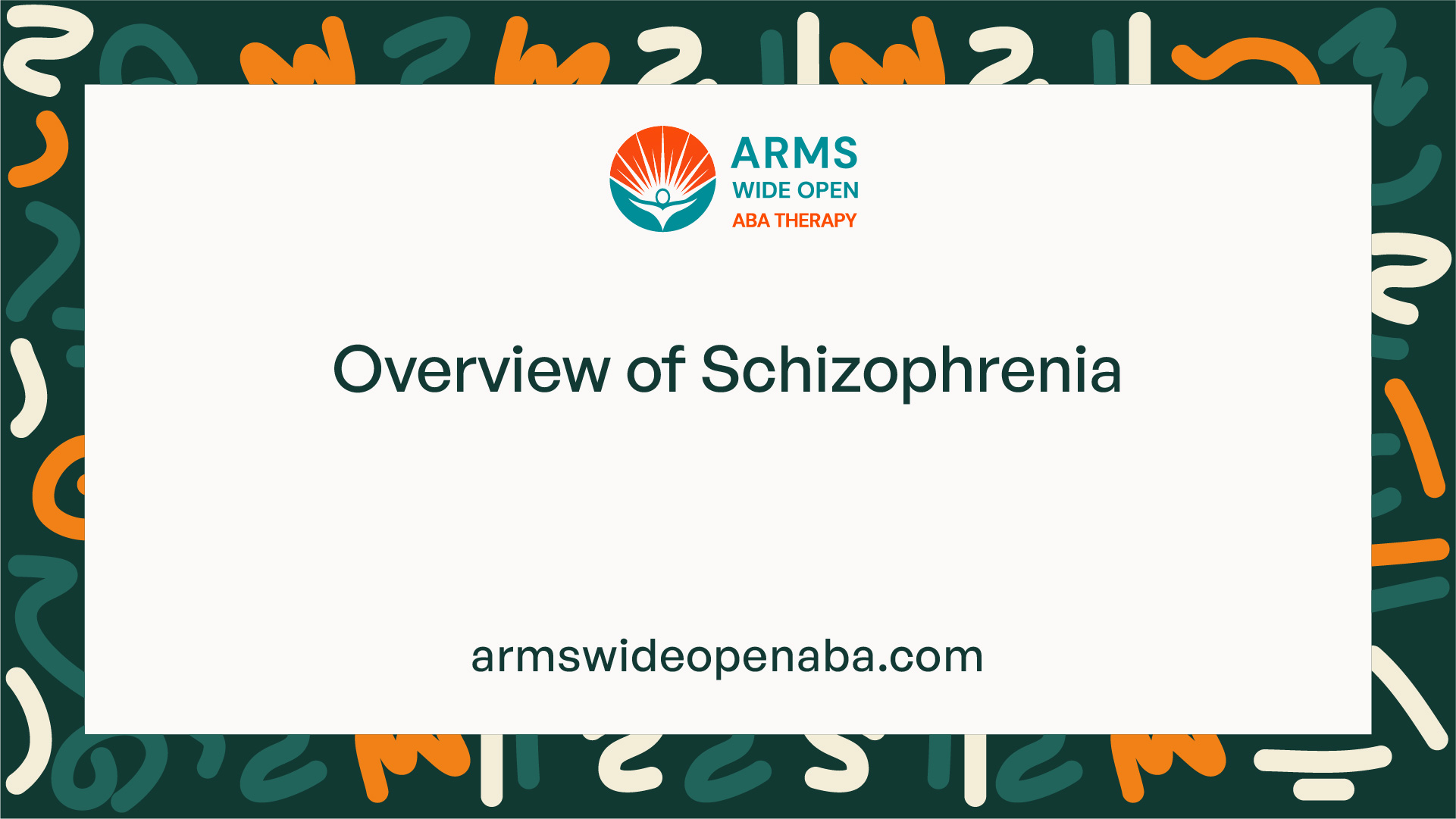
When delving into the realm of mental health, understanding schizophrenia is essential to grasp its impact and implications. Schizophrenia is a complex and chronic mental disorder characterized by disturbances in thinking, emotions, perceptions, and behavior. This section will explore the fundamental aspects of schizophrenia, shedding light on its nature and key characteristics.
Understanding Schizophrenia
Schizophrenia is a severe psychiatric disorder that affects how a person thinks, feels, and behaves. Individuals with schizophrenia may experience a range of symptoms that can significantly interfere with their daily functioning and quality of life. It is crucial to approach schizophrenia with empathy and understanding, as the disorder can have a profound impact on both individuals and their loved ones.
Key Characteristics and Symptoms
Schizophrenia is marked by a constellation of symptoms that can be categorized into positive symptoms, negative symptoms, and cognitive symptoms. Positive symptoms include hallucinations, delusions, and disorganized thinking, often leading to a distorted perception of reality. Negative symptoms involve a lack of motivation, social withdrawal, and diminished emotional expression, impacting a person's ability to engage in daily activities. Cognitive symptoms may manifest as difficulties with memory, attention, and decision-making, affecting overall cognitive functioning.
To provide a clearer picture of the symptoms associated with schizophrenia, the following table outlines the key characteristics that individuals with schizophrenia may exhibit:

By recognizing and understanding the core characteristics and symptoms of schizophrenia, we can better comprehend the complexities of this mental health condition and work towards promoting awareness and support for individuals affected by schizophrenia.
The Connection Between Autism and Schizophrenia
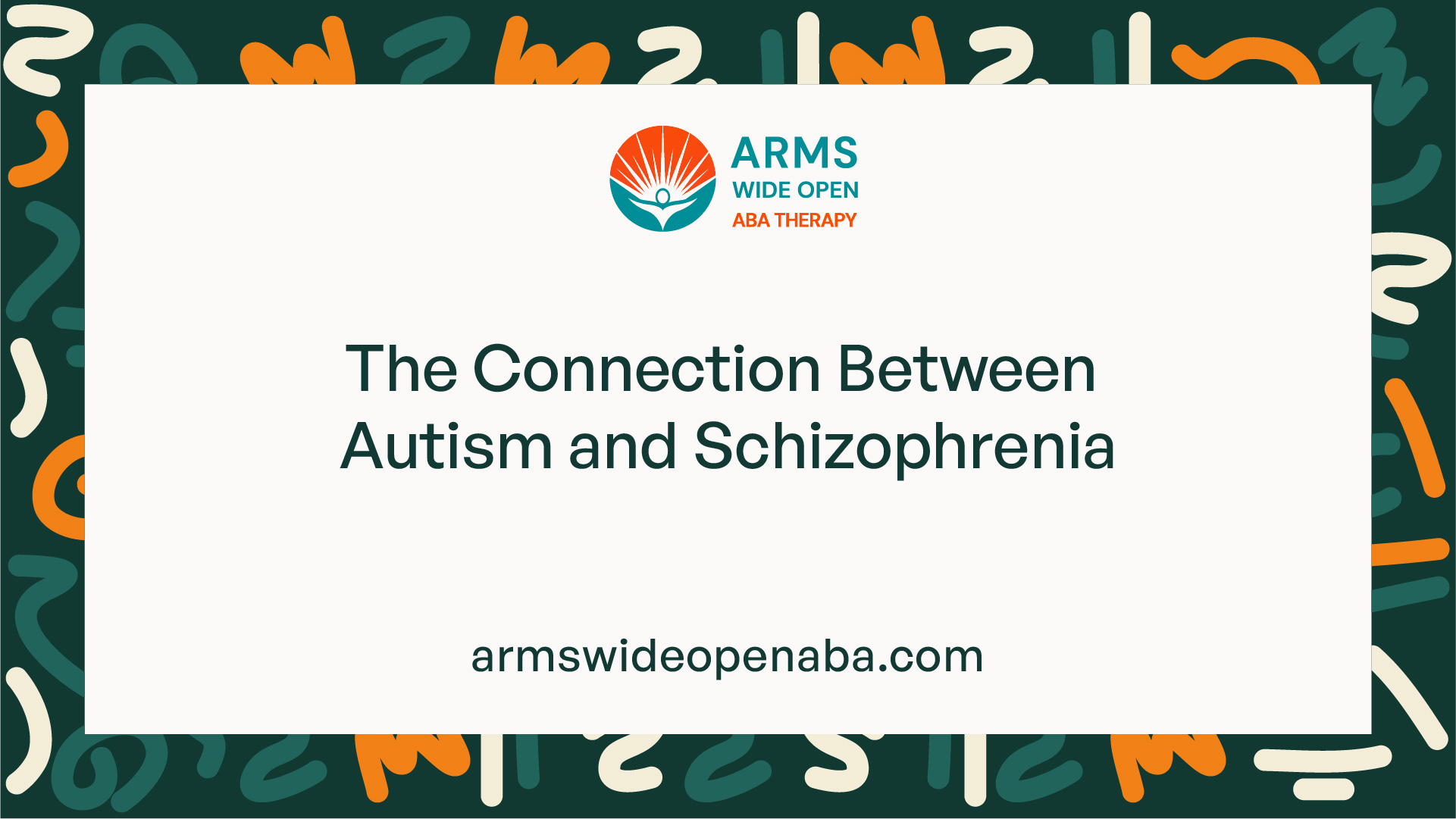
When delving into the potential link between autism and schizophrenia, it is essential to examine the research studies and findings in this area, as well as explore the potential shared genetic links between the two complex neurodevelopmental disorders.
Research Studies and Findings
Several studies have been conducted to investigate the relationship between autism and schizophrenia. While historically viewed as distinct conditions, emerging research suggests some overlapping features and shared biological mechanisms between the two disorders.
One study published in [Reference] examined a sample of individuals diagnosed with both autism spectrum disorder (ASD) and schizophrenia. The findings indicated that these individuals exhibited a unique set of symptoms that combined features of both conditions. This intersection of symptoms has sparked further interest in understanding the potential connections between autism and schizophrenia.
Potential Shared Genetic Links
Genetics play a significant role in the development of both autism and schizophrenia. Recent research has identified several genetic variations that are associated with an increased risk for both disorders. These shared genetic links provide valuable insights into the underlying biological pathways that may contribute to the overlapping symptoms and behaviors observed in individuals with comorbid autism and schizophrenia.
A table summarizing some of the potential shared genetic links between autism and schizophrenia:

By exploring the research studies and understanding the potential genetic connections, we can continue to deepen our knowledge of the complex relationships between autism and schizophrenia. Further research in this area has the potential to enhance diagnostic accuracy, personalized treatment approaches, and ultimately improve outcomes for individuals living with these conditions.
Overlapping Symptoms
When examining the potential link between autism and schizophrenia, it becomes evident that these conditions share certain symptoms that can overlap. Understanding these overlapping symptoms is crucial in distinguishing between the two disorders and providing appropriate support and care for individuals.
Social Impairments
One notable overlapping symptom between autism and schizophrenia is social impairments. Both disorders are characterized by difficulties in social interactions and communication. Individuals with autism may struggle with understanding social cues, forming relationships, and engaging in reciprocal conversations. Similarly, individuals with schizophrenia may experience social withdrawal, disorganized speech, and impaired social functioning.
Cognitive Dysfunction
Cognitive dysfunction is another area where symptoms of autism and schizophrenia converge. Individuals with autism may exhibit challenges in cognitive processing, such as difficulties with attention, memory, and problem-solving. Likewise, individuals with schizophrenia often experience cognitive impairments, including issues with memory, reasoning, and executive function. These cognitive deficits can impact daily functioning and quality of life for individuals with either disorder.

Communication Challenges
Communication difficulties are a common symptom shared by individuals with autism and schizophrenia. In autism, challenges in communication may manifest as delayed language development, atypical speech patterns, or difficulty understanding nonverbal cues. In schizophrenia, communication challenges can present as disorganized speech, thought derailment, or impaired expressive language.

Recognizing these shared symptoms of social impairments, cognitive dysfunction, and communication challenges in individuals with autism and schizophrenia is essential for accurate diagnosis, effective treatment planning, and tailored support strategies. By addressing these overlapping symptoms through targeted interventions, healthcare professionals can enhance the quality of life and well-being of individuals affected by these complex neurodevelopmental and psychiatric disorders.
Diagnostic Challenges
Navigating the diagnosis of autism and schizophrenia can pose significant challenges due to the overlapping symptoms and complexities involved in distinguishing between the two conditions. Understanding the nuances of differentiating and identifying the co-occurrence and comorbidity of autism and schizophrenia is essential in providing appropriate care and support.
Differentiating Between Autism and Schizophrenia
Distinguishing between autism and schizophrenia is a delicate process that requires thorough assessment by healthcare professionals. Both conditions can exhibit similar symptoms, such as social impairments, cognitive dysfunction, and communication challenges. However, the underlying mechanisms and presentation of these symptoms differ between autism spectrum disorder (ASD) and schizophrenia.
To aid in the diagnostic process, healthcare providers may utilize standardized assessment tools, interviews, and observations to gather comprehensive information about the individual's behavior, development history, and symptomatology. Collaboration between multi-disciplinary teams, including psychiatrists, psychologists, and neurologists, is often necessary to ensure an accurate diagnosis and appropriate treatment plan.
Co-Occurrence and Comorbidity
Individuals with autism may also present symptoms or traits associated with schizophrenia, and vice versa, leading to the co-occurrence or comorbidity of these conditions. The overlap in symptoms can complicate the diagnostic process and necessitate a comprehensive evaluation to untangle the complex interplay between autism and schizophrenia.
Studies have shown varying rates of comorbidity between autism and schizophrenia, highlighting the importance of tailored assessments and individualized treatment approaches. Understanding the shared genetic links and neural pathways implicated in both conditions can provide insights into their potential co-occurrence and overlapping symptomatology.
The diagnosis of autism and schizophrenia requires a nuanced approach that considers the unique characteristics of each condition while recognizing the complexities that arise from their potential link. By addressing the diagnostic challenges associated with differentiating between autism and schizophrenia and acknowledging their co-occurrence and comorbidity, healthcare professionals can better support individuals affected by these complex neurodevelopmental disorders.
Treatment Approaches
When addressing the management of autism and schizophrenia, a combination of tailored therapies and medication management strategies plays a pivotal role in helping individuals navigate these complex neurodevelopmental conditions.
Tailored Therapies for Autism and Schizophrenia
Tailored therapies are essential in providing personalized support to individuals with autism and schizophrenia. These therapies are designed to address specific symptoms and challenges associated with each condition, promoting individualized care and optimizing outcomes.
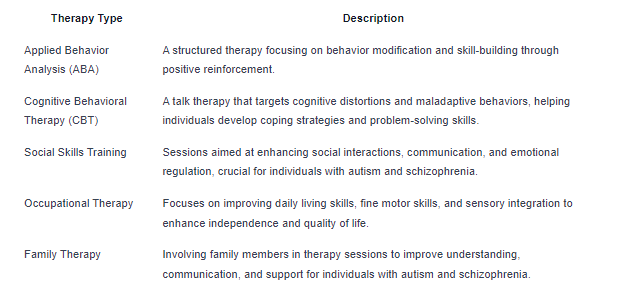
Medication Management Strategies
Medication management is another integral component of the treatment plan for autism and schizophrenia. While medication cannot cure these conditions, it can help alleviate symptoms and improve overall functioning. It is crucial for healthcare providers to carefully monitor the effects of medication and adjust dosages as needed to achieve optimal outcomes.
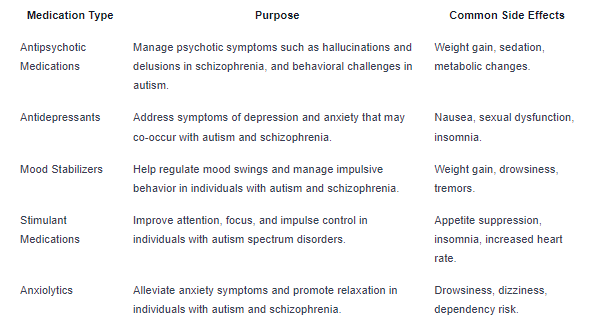
As part of an individualized treatment approach, the combination of tailored therapies and medication management strategies aims to improve the quality of life and functional outcomes for individuals with autism and schizophrenia. By integrating these comprehensive treatment modalities, healthcare providers can address the unique needs and challenges faced by individuals with these neurodevelopmental conditions.
Supporting Individuals
In the realm of autism and schizophrenia, creating supportive environments and accessing community resources and services play pivotal roles in enhancing the well-being of individuals affected by these conditions.
Creating Supportive Environments
Supportive environments are fundamental in fostering positive outcomes for individuals dealing with autism and schizophrenia. These environments aim to provide understanding, acceptance, and tailored support to meet the unique needs of each individual. By promoting inclusion, reducing stigma, and offering a safe space for expression, individuals can thrive and reach their full potential.
One crucial aspect of creating supportive environments is establishing clear communication channels and promoting open dialogue among caregivers, healthcare providers, educators, and the individuals themselves. This facilitates collaboration and ensures that the support provided is cohesive and comprehensive.
Moreover, incorporating accommodations and modifications based on the specific challenges and strengths of each individual is essential in creating an environment that nurtures growth and development. By recognizing the diverse needs of individuals with autism and schizophrenia, supportive environments can be customized to optimize their quality of life and well-being.
Community Resources and Services
Access to community resources and services is invaluable for individuals and families navigating the complexities of autism and schizophrenia. These resources encompass a wide range of support networks, programs, and providers dedicated to offering guidance, assistance, and opportunities for individuals to thrive.
Community resources may include support groups, counseling services, vocational training programs, recreational activities, and advocacy organizations. These resources not only help individuals connect with others facing similar challenges but also provide practical assistance in navigating the healthcare system, accessing specialized services, and acquiring crucial information and support.
Moreover, community services play a vital role in promoting social inclusion, independence, and quality of life for individuals with autism and schizophrenia. By leveraging these resources, individuals can access tailored interventions, therapies, and educational programs that cater to their unique needs and enhance their overall well-being.
By focusing on creating supportive environments and tapping into the wealth of community resources and services available, individuals affected by autism and schizophrenia can receive the necessary support, guidance, and opportunities to lead fulfilling and meaningful lives. It is through collaborative efforts and a community-driven approach that the well-being and future prospects of individuals facing these conditions can be significantly enriched.
Sources
https://www.healthline.com/health/autism-vs-schizophrenia
https://www.ncbi.nlm.nih.gov/pmc/articles/PMC8931527/
Similar articles
We’re here to help you

Our team is here to assist you in this process. Contact us for any assistance.
it’s easy to apply
We Accept Most Insurances
Our in-network insurance partnerships make ABA therapy more accessible to families throughout our service areas.







Our Insurance Process
We'll request your insurance details to help us verify your plan's coverage for ABA therapy. Once we've received this information, we'll walk you through your benefits, including copayments, deductibles and out-of-pocket maximums, so you know what to expect in advance.
Our team will then handle the preauthorization and all the necessary paperwork.
.svg)





















.jpeg)


































.jpeg)




.jpeg)







.jpeg)











.jpeg)
















